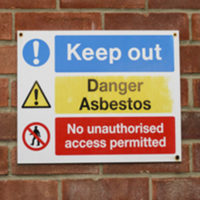
The risk of cancer caused by asbestos has been widely known since the 1930s. There is no safe level of asbestos exposure; when asbestos particles become airborne, they can be inhaled or ingested and get lodged in the chest cavity, resulting in conditions such as mesothelioma. Mesothelioma is a rare and fatal form of cancer, infecting the lining of the lungs, heart, and chest cavity. Mesothelioma often lays dormant in the body for 10 to 50 years after the initial asbestos exposure, but once diagnosed, it leaves patients with a short life expectancy.
Current Regulation May Not Be Enough
Until the late 20th century, asbestos was commonly used in construction. Its flexibility, low cost, and flame-retardant properties made it a useful component of insulation, roofing products, and other building materials. It is also found in many consumer products, including plastics, brakes and other friction products, gaskets, packing materials, and more. While its use is heavily regulated now, it can still be found in older buildings and certain types of products, and presents an active risk to people who are exposed.
The list included other known and possible carcinogens, such as 1,4-dioxane, a compound used in chemical manufacturing, adhesives and sealants; 1-bromopropane, an industrial chemical with numerous uses, including dry cleaning; carbon tetrachloride, a degreasing agent also found in adhesives, sealants, rubber, cement, and paints; methylene chloride, used in various manufacturing processes and as a solvent; and tetrachloroethylene, which has a number of industrial uses, including cleaning, dry cleaning, and automotive care. The list also features several chemicals that can cause reproductive or neurological toxicity in humans, as well as damage to the environment.
All the chemicals on the list are subject to EPA regulation, but the agency will evaluate whether their risks are high enough to necessitate more stringent safeguards. Compounds that present an unreasonable risk to human health may need additional regulation to prevent severe illnesses, such as mesothelioma, from developing. Mesothelioma is notoriously resistant to many common cancer treatments, leaving patients with few options once a diagnosis is received.
Philadelphia Mesothelioma Lawyers at Shein Law Advocate for Victims of Asbestos Exposure
If you or a loved one has been diagnosed with mesothelioma or another asbestos-related disease, call the Philadelphia mesothelioma lawyers at Shein Law. We will thoroughly review the facts of your case to determine who is responsible for your asbestos exposure. With offices conveniently located in Philadelphia and Pennsauken, New Jersey, we help asbestos exposure victims throughout Pennsylvania and New Jersey. Call us today at 877-743-4652 or contact us online to discuss your case.
